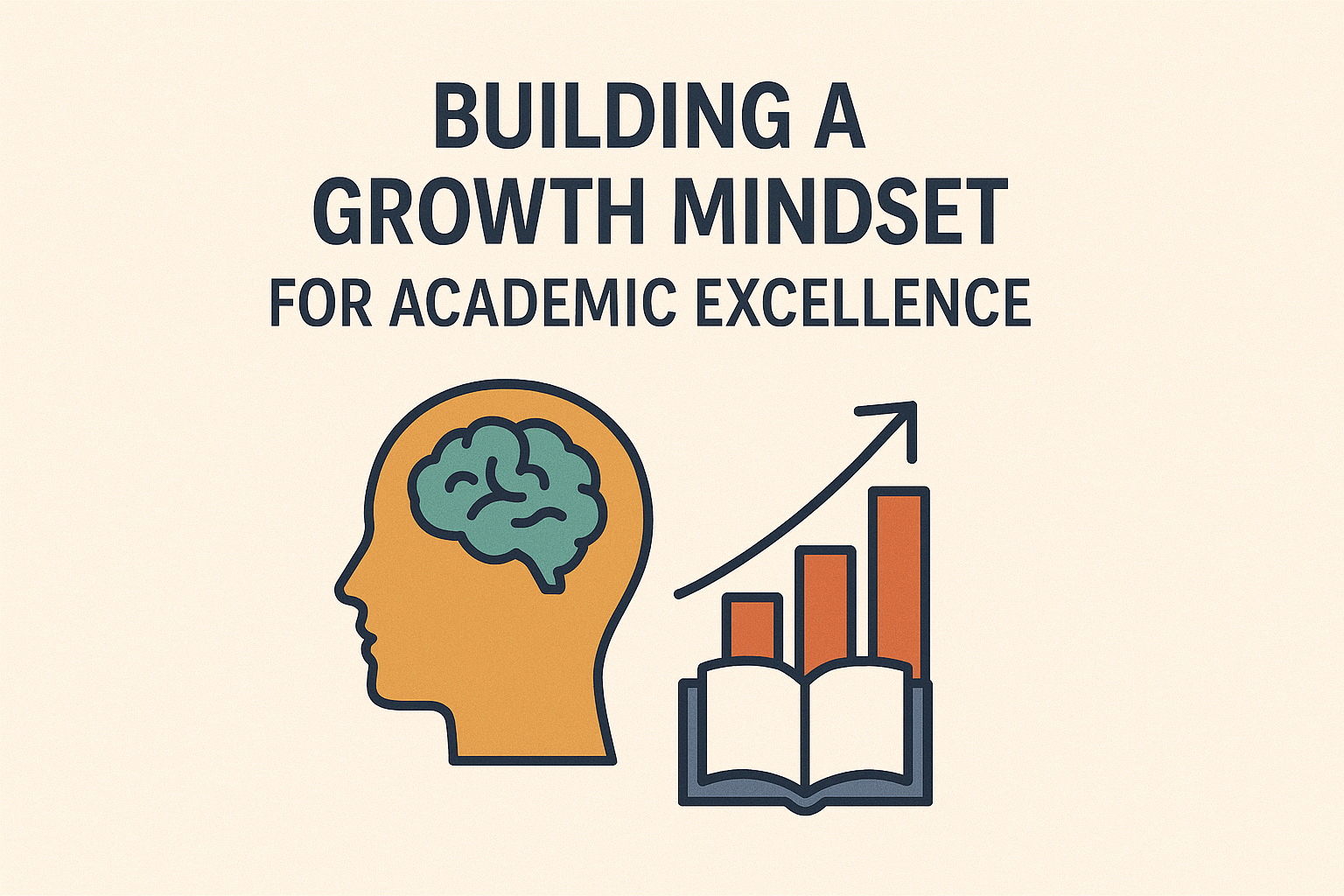
Building a Growth Mindset for Academic Excellence
Success in academics is not solely determined by intelligence or talent — it’s deeply influenced by mindset. Students who believe their abilities can improve through effort and perseverance are more likely to overcome challenges and thrive. This belief system is called a growth mindset, and it’s a game-changer for anyone pursuing academic excellence.
What Is a Growth Mindset?
The term “growth mindset” was popularized by psychologist Dr. Carol Dweck. It refers to the belief that intelligence and abilities are not fixed traits, but can be developed over time through hard work, feedback, and learning from mistakes.
In contrast, a fixed mindset assumes that intelligence and talent are static, which can lead to fear of failure and avoidance of challenges.
Growth Mindset Says: “I may not know this yet, but I can learn.”
Fixed Mindset Says: “I’m just not good at this.”
Why Does Growth Mindset Matter in Academics?
Students with a growth mindset:
- See effort as part of learning, not a sign of weakness.
- View challenges as opportunities to grow.
- Are more resilient after setbacks.
- Engage in deeper learning and problem-solving.
These attitudes directly contribute to improved academic performance, long-term motivation, and better emotional well-being.
How to Develop a Growth Mindset
1. Embrace Challenges
Instead of avoiding hard tasks, tackle them head-on. Challenges stimulate the brain and strengthen your ability to learn.
Tip: When something feels hard, say: “This is how I grow.”
2. Replace Negative Self-Talk
Pay attention to your inner dialogue. Replace fixed mindset phrases with empowering ones:
- “I can’t do this” → “I’ll try a different strategy.”
- “I always fail at math” → “I’m improving in math each day.”
3. Focus on Effort, Not Just Results
Celebrate the effort, persistence, and strategies you used — not just the grade. This reinforces that success is a process.
4. Learn from Mistakes
Every mistake is an opportunity to learn. Instead of feeling discouraged, analyze what went wrong and what you can do differently next time.
5. Surround Yourself with Encouragement
Build a support system of friends, teachers, and family members who reinforce the idea that you can grow. Avoid environments that label or discourage progress.
Building Growth Mindset in Students: Role of Parents & Teachers
Parents and teachers can nurture a growth mindset by:
- Praising effort and improvement instead of innate ability.
- Encouraging curiosity and learning from failure.
- Modeling a growth mindset in their own behavior.
Example: Instead of saying “You’re so smart,” say “You worked really hard to figure that out!”
Final Thoughts
Academic excellence isn’t reserved for the “naturally gifted” — it belongs to those who are willing to learn, grow, and persevere. By cultivating a growth mindset, students unlock their true potential and develop the resilience needed for lifelong learning.
Start today: Challenge your thinking, celebrate your progress, and remember — your brain is like a muscle. The more you use it, the stronger it gets.
Learn more about our Programs [View Programs]
